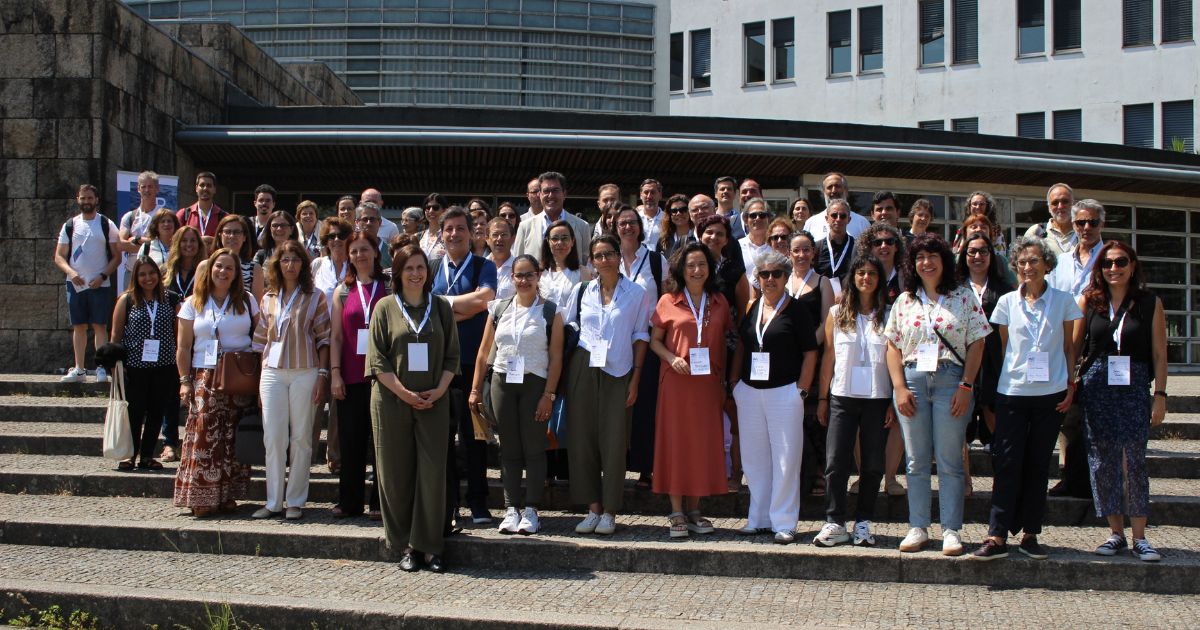ARNET promotes first national meeting with its scientific community
More than 100 researchers took part in the event, which strengthened the links between MARE, CIMA and CBMA and highlighted the role of science in defining public policies for aquatic ecosystems.
On July 3 and 4, the University of Minho hosted the 1st National Meeting of ARNET - Aquatic Research Network. This initiative brought together, for the first time, the scientific community that is part of the associated laboratory, created in 2020, and brought together more than a hundred participants. For two days, results were shared, challenges were discussed and links were strengthened between teams and institutions that, from the north to the south of the country, work for the sustainability of aquatic ecosystems.
The opening session was attended by the directors of ARNET's three founding units: Pedro Raposo de Almeida (MARE - University of Évora), Sara Raposo (CIMA - University of the Algarve) and Cláudia Pascoal (CBMA - University of Minho). Among the topics discussed were the urgent need to mobilize the ARNET community for more coordinated action, the strategic role of the associated laboratories in the national scientific system and the growing importance of the link between science and political decision-making.
The first day's program included a presentation of ARNET's five scientific domains: (i) aquatic exploration and monitoring, (ii) environmental sustainability, (iii) environmental risk, (iv) biotechnology and nature-based solutions, and (v) governance and literacy. This was followed by the presentation of the researchers recently hired under the specific funding for the associated laboratory, who are developing projects in areas such as the early detection of invasive species, the valorization of waste from the fishing industry or the monitoring of ecosystems with satellite images.
Also in the morning, the results of a horizon scanning exercise involving several researchers from the network were shared, which identified the main strategic challenges for Portuguese aquatic ecosystems over the next decade.
In the afternoon, three cross-cutting ARNET working groups were presented: the data management platform, the services platform and the communication group. This was followed by meetings of the network's five scientific domains, which brought together researchers from different institutions to reflect on the main challenges and opportunities in each area. These sessions made it possible to discuss strategies for future dynamization and culminated in the sharing of the main key messages in plenary.
The second day was marked by the round table “Monitoring, Evaluating and Acting: challenges for the management of aquatic systems”, which brought together representatives of entities with relevant work in the territory: António Martinho (ICNF), Frederico Lopes (Águas do Norte), Graça Fonseca (CCDR-Norte) and Pedro Raposo de Almeida (ARNET/MARE), moderated by Cláudia Pascoal (ARNET/CBMA). The debate highlighted the need to strengthen the link between scientific knowledge and public policies, highlighting the role that networks like ARNET can play in the monitoring, assessment and management of aquatic resources.
The ARNET Meeting thus marks an important step in the consolidation of the network, promoting a more collaborative science committed to action in the territory. For the organizers, this moment represented not only a point of arrival, but above all a starting point for a new phase of joint work between MARE, CIMA and CBMA, in dialogue with society and political decision-makers.
Text by Vera Sequeira
